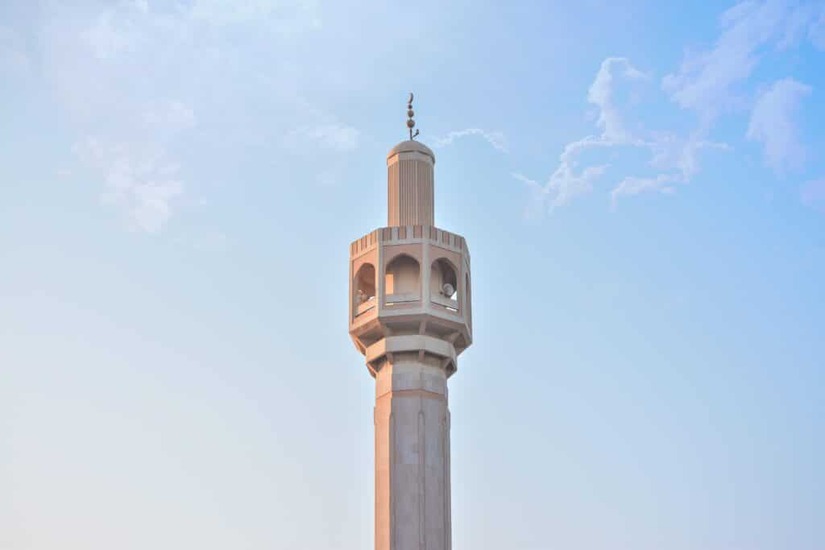Is there a pension for expats in Qatar? An expat’s guide
Discover pensions available for expats in Qatar and potential offshore savings.
If you have any questions or want to invest as an expat or high-net-worth individual, you can email me (advice@adamfayed.com) or use these contact options.
Introduction
Qatar is a popular destination for expats due to the high quality of living, minimal taxes, a vibrant economy, and modern infrastructure.
The cost of living in Qatar is among the lowest in the world, making it an attractive destination for international residents who want to reduce their spending on essentials like housing and food while enjoying high-quality services.
However, there are things to take note for those looking to retire here, especially about the pension for expats in Qatar—or rather its lack of one.
Is there a pension for expats in Qatar?
In a nutshell, no. You will not find a pension for expats in Qatar.
The General Retirement and Social Insurance Authority (GRSIA) manages Qatar’s government pension system, while the Civil Service and Governmental Development Bureau (CSGDB) supervises its day-to-day operations.
By allocating pensions in accordance with the terms of the Retirement and Pension Law No. 24 of 2002, the GRSIA is responsible for providing social support to retired Qatari nationals and their family members in the event of their passing.
The agency accomplishes this purpose through managing and investing public monies as well as collecting pension contributions.
The Qatari government believes that expatriates are supposed to manage their own affairs. As such, there is no pension for expats in Qatar.

Qatar’s pension system is only available to Qatari citizens, men and women, employed by the government, and who have made a total of 15 years’ worth of contributions.
Eligible citizens, men and women, receive a state pension when they reach 60 or 55, respectively. There is an early retirement option for those aged 40, but 15 years of contributions are still necessary for it to become available.
For nationals working in the public sector, the retirement age is 60; however, there is no set retirement age for those employed in the private sector.
Expatriate employees over 60, however, cannot change sponsorships and any visa renewal petitions must be given in writing.
Based on the employee’s final wage at the time of retirement (i.e. their salary in the last year of employment), the pension’s size is determined. Then, depending on a person’s final wage and length of employment, additional social allowance benefits are assigned.
The government contributes, covers administrative costs, and makes up any shortfalls to ensure the total contribution of 15%. The employee is required to pay in a monthly contribution equal to 5% of salary, the employer tops the contribution up by a further 10% (gross salary).
For the purpose of meeting the necessary 15% total pension contribution, Qatari personnel working in other GCC nations may make greater contributions that range from 5.5% to 8% of their salaries. The government will sometimes cover the deficit.
Employees in Qatar who work for ministries, governmental institutions, agencies, joint stock firms, and other positions as determined by the Council of Ministers at the GRSIA are also eligible for the pension plan.
Additionally, pensions are given to retired military personnel and civilian employees, or to their qualifying heirs in the event of their passing.
Under Law No. 7 of 2007, Qataris who are qualified for a government pension and who work in other GCC nations are also covered.
As of time of writing, the government program excludes Qataris who work in the private sector. It is the individual’s responsibility to work out a pension plan with their employer or enroll in the pension plan offered by the business.
However, this year, the Qatari government is planning to make changes to its social insurance system, such as including private employees in the mandatory enrollment under the newly established pension scheme.
There will be no changes to the policies on a retirement pension for expats under the new scheme. There will still be no pension for expats in Qatar after the change.
This might change in the future, especially as the Middle East is seeing demand for pensions for expatriate employees.
The UAE rolled out their DIFC Employee Workplace Savings (DEWS) Plan for workers based in the Dubai International Financial Centre (DIFC), the emirate’s main financial hub.
The previous end-of-service gratuity scheme, in which expat employees are given a set sum of money at the conclusion of their employment with an increasing percentage applied after one, three, or five years, was going to be replaced by the new plan.
All Dubai government agencies’ employees are required to participate in DEWS. Before December 2023, their expatriate staff will also be required to enroll in the program.
A retirement pension for expats in Qatar might follow suit, if this pressure spills over the region.
Should you still consider living in Qatar?
Qatar is a small country with a population of 2.6 million. Only around 300,000 of those are Qatari citizens, which makes it the largest expat community in the world.
The expat community is made up of people from all over the world, living in Qatar for many different reasons. Business owners love Qatar for its myriad opportunities and investment potential.
Families who seek better education systems or healthcare facilities than what they can find at home find quality services in the country.
The high quality of infrastructure also provides people looking for jobs on construction sites or similar jobs with comfortable jobs and high salaries.
Most importantly, due to Qatar’s territorial taxation structure, regardless of one’s tax residency, a person is only taxable in Qatar if they have earned qualifying income with a Qatari source.
This means that salaries, wages, and other compensation received by employed people in the country are not subject to income tax.
A self-employed person is only subject to income tax if they receive qualified income from Qatari sources.
Even without a pension for expats in Qatar, there are still plenty of reasons you might consider living here.
Pensions are a type of retirement benefit provided by an employer or government to its employees. In some countries, the state pays for pension contributions and payments into the system.
In other countries, employers make up for this shortfall through contributions from employees’ wages or other sources.
In addition to not having a pension for expats in Qatar, it should also be noted that work visas in the country have their limits, particularly for those aged 50 and up. Expatriates are not allowed to work in Qatar after the age of retirement.
This means that living your retirement will be very difficult, unless you have a way to support yourself.
As an expat you need to be aware of your employer’s retirement policies and Qatari law regarding pensions.
You can still save for your retirement in Qatar, whether you’re an expat working with a local company or a local employee of an international company. There are a number of overseas pensions available to expats, depending on their country of origin.
For UK expats, for instance, you can claim a State Pension abroad if you’ve paid enough UK National Insurance contributions to qualify. The UK government provides online tools to work out how much you can get from your contributions.
All you would need to do is contact the International Pension Centre if you are within four months of your State Pension age, and send an international claim form.
For pensions like this, you must specify the nation in which you want to receive your pension. You cannot receive payment in one nation for a portion of the year and in another for the remainder.
You can also invest in your retirement on your own or with a trusted financial planner.
Financial planners and advisors can help you meet your financial goals, set budgets, and guide you towards making investments that are best-suited for your needs. If you want to retire in Qatar, it is highly recommended you consult an expert to plan your retirement options well in advance.
You can also find an employer who is willing to offer you retirement options for working in Qatar. There may be no government pension for expats in Qatar, but that does not stop private companies from offering one.
The easiest way to make sure that you have a secure retirement is by ensuring that you choose an employer who will provide for your future. There are many benefits associated with working in Qatar, but it’s important to understand how these can be enhanced through your employment contract.
For foreigners who want to conduct business in Qatar, there are stringent laws in place. It is crucial to remember that you will not be able to work in Qatar without a legal work permit, which is frequently granted by the employer, whether you are going to move there or visit the country for employment.
Given how intrusive it is, the visa application procedure is something that expats should be prepared for.
Extremely talented foreign nationals frequently hold more senior jobs, which translates to higher pay and enticing work benefits.
Contracts of employment may also include travel, lodging, and child care expenses, which is a significant perk. In addition, those who want to relocate to Qatar can anticipate paying low, if any, taxes.

What else should you know about living in Qatar as an expat?
Even without a retirement pension for expats in Qatar, you can find an entire community of expats in the country to ask for guidance if you ever decide to live there.
Qatar is a popular destination for expats, with many different nationalities residing in the country. The majority of expats in Qatar are there for work purposes, but some choose to live there for retirement as well.
There are many construction projects being carried out by the government and private sector, as well as infrastructure projects such as hospitals and schools.
The oil and gas industry is another big employer for expats in Qatar. There are many companies working on drilling rigs around Doha alone.
These companies have openings for engineers with all kinds of experience levels from entry level through senior management positions; anyone looking for a job will find something suitable easily enough here.
The cost of living in Qatar is high, but not as high as other developed nations.
Qatar is a great place to live, but it might not have the best options for health care, especially if you’re paying out of pocket. You can get private healthcare in Qatar and there are some excellent hospitals in the country.
If you’re thinking of moving to Qatar, it’s important that you understand where you’ll be living. There are many options for expats, and it’s important to choose one that meets your needs and lifestyle.
The capital and primary financial center of Qatar is Doha. It is home to the majority of the people and is situated on the Persian Gulf coast in the east of the nation, north of Al Wakrah and south of Al Khor.
With over 80% of the country’s population residing in Doha or its surrounding suburbs, it is also Qatar’s fastest-growing city.
Al-Rayyan is a city in the municipality of its namesake, Al Rayyan, Qatar. The city and its surrounding areas make up the largest population center in Qatar outside of Doha proper, immediately to its east.
Its western boundary roughly coincides with the Al Majd Highway’s route through the municipality. It is regarded as a part of the metropolitan Doha area. It is one of the locations for the 2022 Qatar World Cup.
Al Rayyan also has several businesses offering services like banking services as well as shopping malls where locals go out into town on weekends so there are plenty opportunities here too.
Moving to Qatar with kids is also great option. There are plenty of things to do here, the education system is excellent and it’s a safe place to live.
Qatar is one of the richest nations on Earth and boasts some amazing sights. That being said, if you were expecting a retirement pension for expats in Qatar to sustain your life there, it might not be the best option for you.
Pained by financial indecision? Want to invest with Adam?

Adam is an internationally recognised author on financial matters with over 830million answer views on Quora, a widely sold book on Amazon, and a contributor on Forbes.



